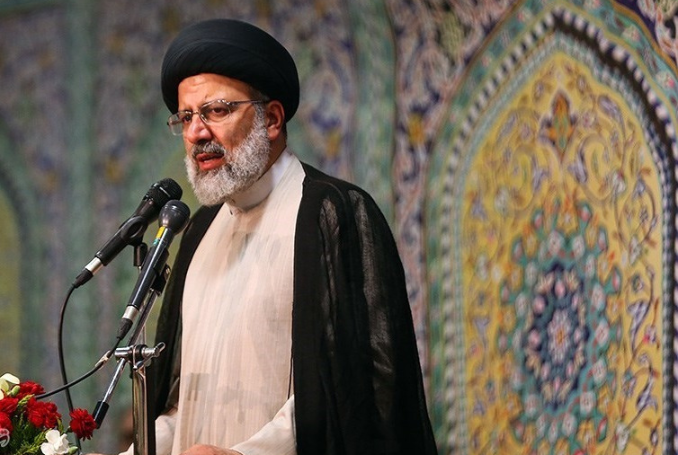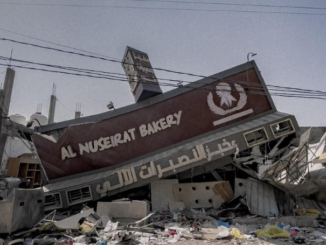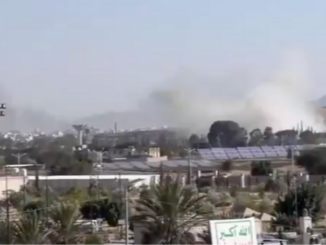
“The situation will be completely different and it’s not known whether anything will be left of the regime,” Raisi said.
Iranian President Ebrahim Raisi issued a warning on Tuesday, stating that any future Israeli attacks on Iranian territory would lead to drastic consequences, and there “will be nothing left of the Zionist regime.”
Speaking at Government College University in Lahore, Pakistan, Raisi condemned Israel’s recent assault on the Iranian Consulate in Syria and emphasized Iran’s retaliatory measures.
The attack resulted in the deaths of 13 people, including two senior Iranian commanders.
Raisi cautioned that any further aggression would provoke a significantly different response from Iran, possibly leading to the downfall of the Israeli regime.
“The situation will be completely different and it’s not known whether anything will be left of the regime,” he said.
Raisi also highlighted Iran and Pakistan’s shared commitment to supporting the Palestinian cause, emphasizing Tehran’s determination to defend the oppressed Palestinian people.
Furthermore, the Iranian president criticized the United States for its hypocrisy regarding free speech, citing the expulsion of over 100 students from Columbia University for expressing pro-Palestinian sentiments.
During his visit to Pakistan, Raisi engaged in discussions with Prime Minister Shehbaz Sharif and Pakistani Army Chief General Syed Asim Munir, focusing on bilateral and regional issues, including the situation in Gaza.
Raisi’s meetings underscored Iran’s continued efforts to strengthen ties with Pakistan and its commitment to supporting Palestinian rights in the face of ongoing Israeli aggression.
Iranian Retaliation and Israeli ‘Response’
Tehran launched on Saturday its first direct attack on Israel in history, deploying drones and missiles in response to an Israeli missile strike on the Iranian consulate in Damascus, resulting in the death of seven Iranian Revolutionary Guard members, including General Mohammad Reza Zahedi.
According to Iran’s official news agency IRNA half of the missiles aimed at Israel hit their targets.
For their part, Iranian forces said that they managed to successfully strike an Israeli air base in the Naqab (Negev) using Khaybar missiles.
The base was reportedly the origin of the attack on the Iranian Consulate in Damascus on April 1.
On April 19, three small explosions were heard over the Iranian city of Isfahan in the central district of the country.
Within an hour or so, the US government, military and media were rife with news reassuring the Iranians that Washington played no part in the Israeli attack, and that the attack did not target Iran’s nuclear facilities, and the like.
Iran’s Retaliation Against Israel: The ‘Theater’ and the Spectators
For its part, the Iranian message was not that of escalation – blaming ‘infiltrators’ and belittling the Israeli strike. In fact, the Iranian position is justified.
Iran’s Foreign Minister, Hossein Amir-Abdollahian, has ridiculed the impact of the recent drone attack on Iran, describing it as small in scale and involving primitive hardware.
In an interview with NBC News, Amir-Abdollahian said that claims by some media outlets that the explosions over Isfahan, home to a major air base, were an Israeli retaliatory attack were “not accurate”.
“What happened last night was not a strike,” he said, adding that the attack involved just two or three small UAVs, which “were more like toys that our children play with, not drones.”
(PC, Anadolu)








